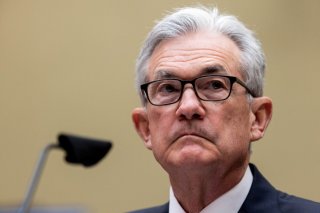Holiday Blues: Consumers Slash Gift Buying Amid Inflation
The poll of more than 1,000 adults revealed that about half of shoppers plan to purchase fewer gifts this year due to higher prices, and more than a third admitted that they intend to use coupons to help cut down on costs.
A new survey by RetailMeNot suggests that persistent inflationary pressures are taking a considerable amount of joy out of this holiday shopping season, CNBC reported.
The poll of more than 1,000 adults revealed that about half of shoppers plan to purchase fewer gifts this year due to higher prices, and more than a third admitted that they intend to use coupons to help cut down on costs.
“Inflation is, by far, the biggest issue for households this year,” Tim Quinlan, senior economist at Wells Fargo and author of its 2022 holiday sales report, told the business news outlet.
“The bottom line is, with inflation remaining a headache, dollars aren’t stretching as far, and most consumers will still be looking for bargains,” he continued.
The survey comes amid growing concerns that the U.S. economy will eventually be tipped into a potentially deep recession. To tame decades-high inflation and slow down critical areas of the economy, the Federal Reserve green-lighted a fourth-consecutive seventy-five-basis-point interest rate hike last week.
With the widely telegraphed move, the central bank boosted its short-term borrowing rate to a target range of 3.75 percent to 4 percent, the highest level seen since January 2008. Futures markets are currently pricing in the greatest odds of a peak rate of 5 percent to 5.25 percent sometime in the first half of 2023.
On Tuesday, former Boston Fed president Eric Rosengren told CNBC that the country is likely headed for an economic downturn in 2023.
“I think it’s quite likely the U.S. has a mild recession next year,” he said.
When asked to put a figure on the possible terminal rate, Rosengren said: “More than 5.5 percent would be my expectation.”
Meanwhile, as reported by CNN Business, Goldman Sachs told its clients on Monday that it currently sees a relatively low 35-percent chance of a recession over the next twelve months.
“We still see a very plausible non-recessionary four-step path from the high-inflation economy of the present to a low-inflation economy of the future,” Goldman Sachs chief economist Jan Hatzius wrote in a report, adding that he expects U.S. gross domestic product to expand by about 1 percent over the next year.
“The most encouraging recent step on the narrow path to a soft landing has been the slowdown in nominal wage growth,” he added.
Although 35 percent is double the normal risk of a recession, it is far below what other economists are predicting. Bloomberg economists are signaling that a recession is effectively certain within the next twelve months, while the Wall Street Journal’s survey of sixty-six economists has put the odds of a recession within the next twelve months at 63 percent.
Ethen Kim Lieser is a Washington state-based Finance and Tech Editor who has held posts at Google, The Korea Herald, Lincoln Journal Star, AsianWeek, and Arirang TV. Follow or contact him on LinkedIn.
Image: Reuters.

